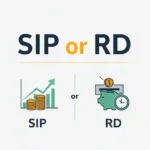The market for commodity trading presents plenty of opportunities for investors who seek to diversify their portfolios. But first, you need to open a commodity trading account with a registered broker. This account provides you with access to commodity exchanges like the Multi Commodity Exchange (MCX) and the National Commodity & Derivatives Exchange (NCDEX), where you can trade in several commodities using futures contracts and other derivative instruments.
Whether you’re a seasoned trader or a beginner, understanding the account opening process is crucial to entering the world of commodity trading with confidence.

Step-by-Step Guide to Opening a Commodity Trading Account
1. Choose a Registered Broker
The initial step to open a commodity trading account is to choose a broker registered with the respective regulatory bodies, including the Securities and Exchange Board of India (SEBI) and the Forward Markets Commission (FMC) or its replacement. While choosing a broker, look for factors such as:
- Brokerage Charges: Look for competitive fees and low commissions.
- Trading Platform: Ensure the broker offers a user-friendly and reliable trading platform with real-time data.
- Customer Service: Choose a broker known for responsive and helpful customer support.
- Range of Commodities: Verify that the broker provides access to the commodity markets you’re interested in, such as metals, energy, or agricultural products.
2. Complete the Account Opening Process
After choosing a broker, the next thing to do is to initiate the account opening process. This is usually done through the following steps:
- Online Application: Most brokers offer an online application process. Fill in the required details such as your personal information, contact details, and investment preferences.
- KYC Verification: Complete the Know Your Customer (KYC) process by submitting necessary documents such as:
- Proof of Identity: PAN card, Aadhaar card, or passport.
- Proof of Address: Utility bills, bank statements, or rental agreements.
- Photograph: A recent passport-sized photograph.
- Bank Account Details: Provide your bank account information for fund transfers, which will be linked to your trading account.
- Agreement and Disclosures: Review and accept the broker’s terms and conditions, agreements, and risk disclosures.
3. Fund Your Trading Account
After your application is approved and your KYC is verified, you’ll need to deposit funds into your trading account. This initial capital will be used to place trades on the commodity exchanges. Ensure you’re aware of any minimum deposit requirements and fund transfer fees associated with your broker.
4. Access the Trading Platform
After your account is funded, you can access the broker’s trading platform. Here, you will be able to:
- Market Data: Real-time quotes and charts for various commodities.
- Trading Tools: Analytical tools to help you make informed trading decisions.
- Order Placement: Options to place, modify, or cancel orders.
Get accustomed to the features of the platform, and take advantage of demo accounts or tutorials that most brokers provide to new customers.
5. Start Trading
With your account set up and funded, you’re ready to start trading. Implement your trading strategy by carefully evaluating market trends, setting stop-loss orders, and monitoring your positions regularly. Keep track of your trades, and adjust your strategy as needed based on market conditions.
Tips to Maximize Your Commodity Trading Success
- Educate Yourself:
Invest in the study of commodity markets, trading techniques, technical analysis, and risk control. Look to online courses, webinars, and studying market reports. - Practice with a Demo Account:
Make use of a demo account first to try trading situations without investing real capital. - Stay Informed:
Monitor global and local news that may affect commodity prices, including geopolitical developments, economic indicators, and weather forecasts. - Use Risk Management Strategies:
Always employ stop-loss orders and position sizing methods to minimize possible losses and safeguard your capital. - Diversify Your Investments:
Never invest all your capital in one commodity. Diversify across different sectors to minimize risk and maximize possible returns.
Final Thought
Opening a commodity trading account is your key to an exciting universe of diversified investment opportunities. Following the steps given in this guide—selecting the appropriate broker, going through the KYC procedure, depositing funds, and using solid trading strategies—you can start trading commodities with ease.
Although the commodity market can be volatile, effective risk management and ongoing learning will enable you to overcome such volatility and make the most of your returns. Embrace the journey, remain disciplined, and see your investment potential increase.
Frequently Asked Questions (FAQ)
Q1. What is a commodity trading account?
A: A commodity trading account is an account with a registered broker where you can trade in commodity markets using futures contracts and other derivative products.
Q2. How do I complete the KYC process for a commodity trading account?
A: The KYC process involves submitting documents such as your PAN card, Aadhaar card, proof of address, and a recent passport-sized photograph. This process is mandatory for all investors.
Q3. Is there a minimum deposit required to open a commodity trading account?
A: Yes, many brokers have a minimum deposit requirement. The exact amount varies by broker, so it’s important to check with your chosen broker.
Q4. Can I practice commodity trading before using real money?
A: Yes, most brokers provide demo accounts where you can simulate trading strategies without using real capital.
Q5. What are the primary risks associated with commodity trading?
A: Commodity trading carries risks like market volatility, leverage risk, regulatory actions, and geopolitical events. Proper risk management is essential to manage these risks.









